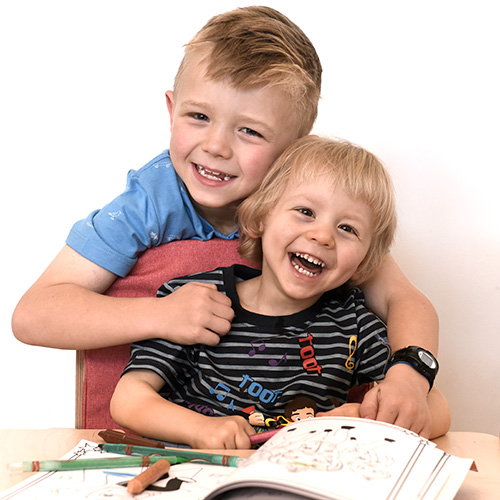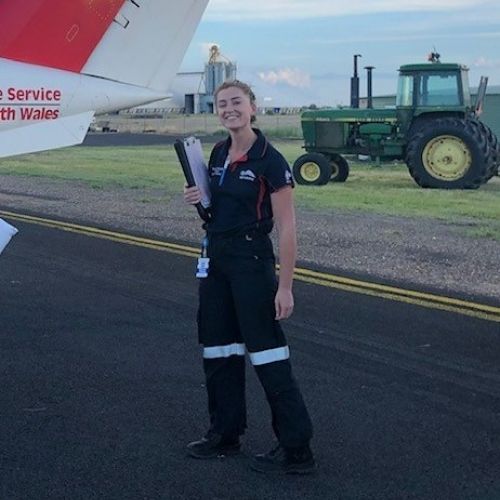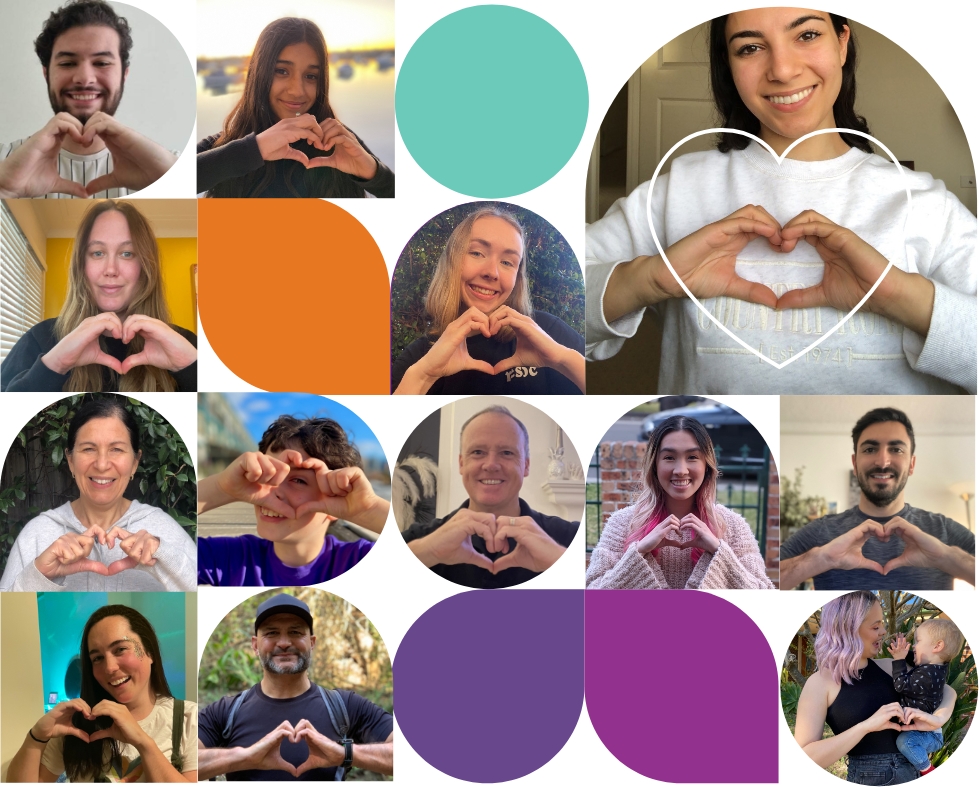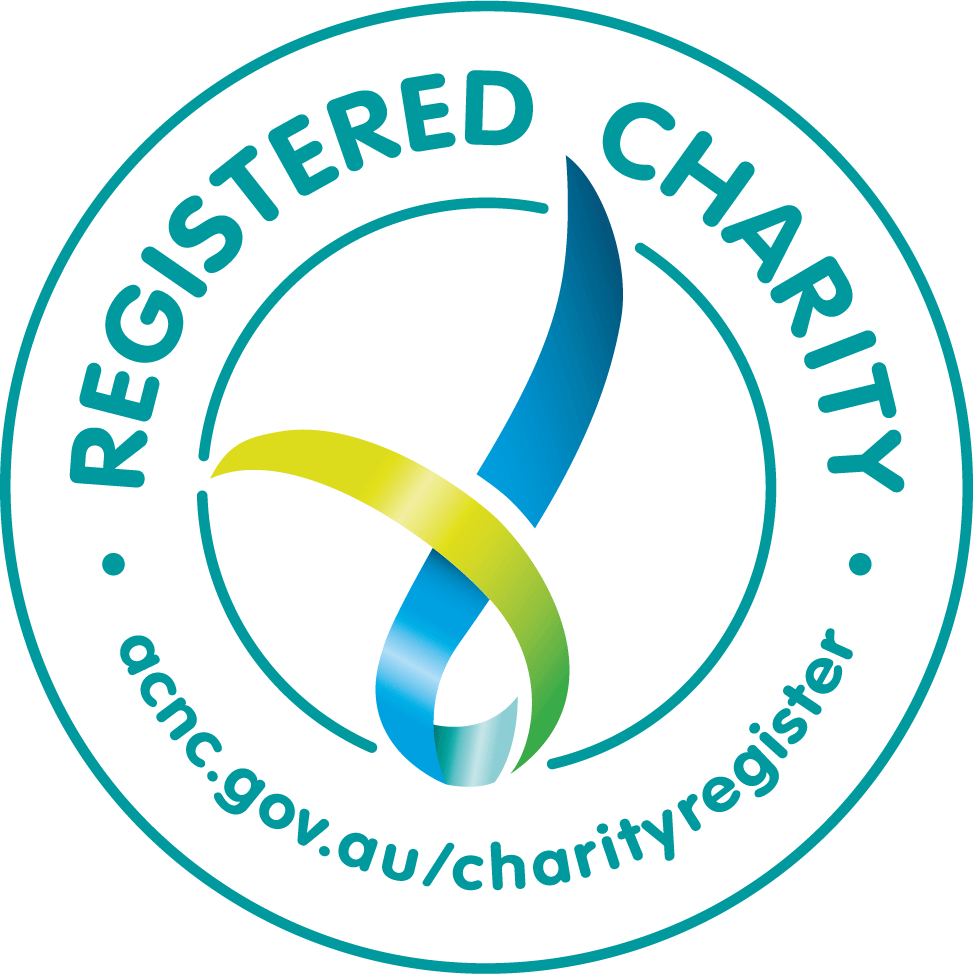The expert team at the Grace Centre for Newborn Intensive Care at The Children’s Hospital at Westmead helped little Prapti survive a rare and life-threatening condition.
When Pratik went to work on in September 2020, he was full of excitement and anticipation about the imminent arrival of his first child. But the bus driver had barely begun his shift when he received a troubling call from a friend that changed everything.
“I’ll be taking your wife to the hospital,” Pratik remembers his friend saying. “Her water has broken.”
By the time Pratik arrived at their local hospital, his wife Charmi was on her way into an operating theatre.
After an anxious hour and a half, Pratik remembers, “a big group of people burst out of the theatre wheeling this large humidicrib. I couldn’t see my baby inside because of all the oxygen cylinders and monitors”.
“One of the doctors said, ‘You can come with us. Your baby is very sick. We are going to take her to the NICU.’”
Born with an excessive build-up of fluid, every part of Prapti’s little body was swollen including her face, stomach and even toes. Her lymph nodes were drained for the next 24 hours but the fluid wouldn’t stop running. Soon, her body was draining half a litre of liquid from her chest every day, which left her doctors very concerned and perplexed.
Prapti was transferred to the Grace Centre for Newborn Intensive Care – a specialised unit dedicated to treating critically ill babies at The Children’s Hospital at Westmead. Her expert team carried out a serious of tests and scans to identify the mysterious cause of her illness.
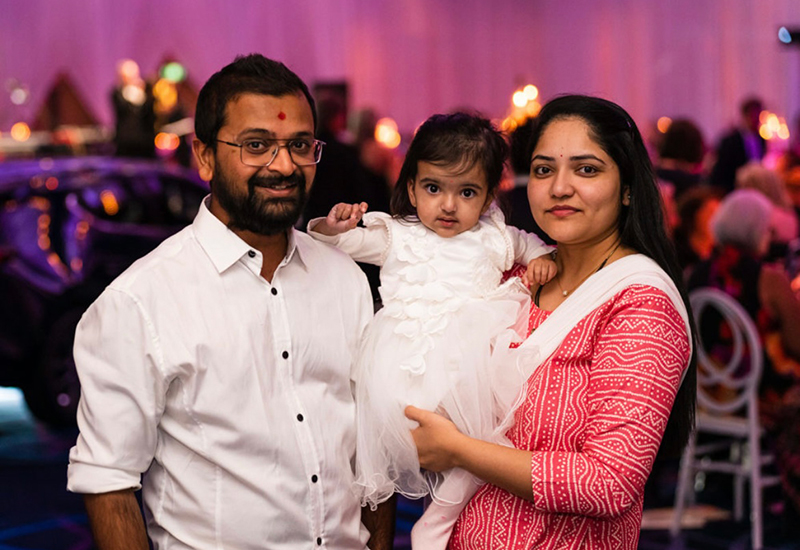
Prapti was soon diagnosed with Central Conducting Lymphatic Anomaly (CCLA), a condition so rare that hers is thought to be the first case of its kind in Australia. With few treatment options available, Prapti’s team looked around the world for a solution.
“The doctors said they could start a treatment that might work, but could not be guaranteed,” Pratik remembers. “I was just praying for my daughter to come home.”
Prapti was put on a sirolimus medication, which is most commonly given to kidney transplant patients for immune suppression. To Pratik and Charmi’s enormous relief, it worked. The innovative treatment successfully stemmed the flow of fluid from the Prapti’s lymphatic system and allowed her to come off the ventilator that had been keeping her alive. Pratik understands why this was so important.
“The longer a child stays on a ventilator, the more damage it does to their little lungs. We wanted to get her off it as soon as possible.”
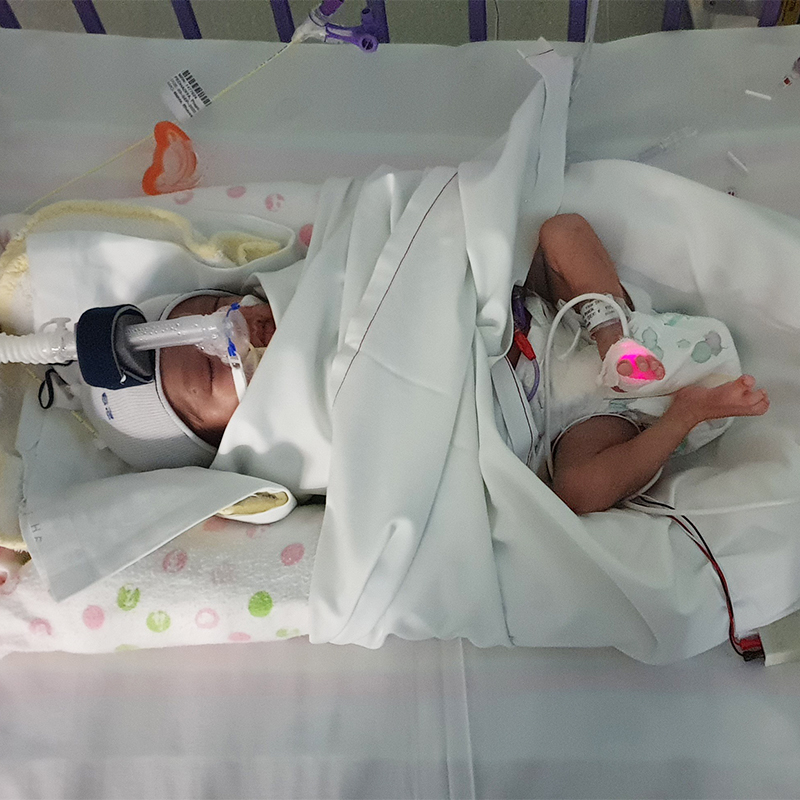
All up, Prapti and her family spent 77 days in the Grace Centre receiving treatment and follow-up care. This included 67 days in the high dependency part of the ward.
Pratik says he could not be more grateful to Prapti’s team for their hard work and support – and for giving his little girl a second chance at life.
“Everyone from the medical to the research team supported us so well. They invested an enormous amount of time in my daughter.
“It was comforting to know Prapti was in the hands of the leading experts in their field. The staff were all so kind. They understand what parents who have a child in the NICU are going through, and they bring hope and positivity when you need it most.”
Pratik says his experiences with Prapti over the last couple of years have made him more appreciative of the simple things in life.
“I remember Christmas in 2020 how thankful we were to have Prapti home with us. She was still on oxygen, and we couldn’t go far from home, but we were together. That’s what Christmas will always mean to me – family and togetherness.”

This Christmas, Pratik and Charmi are calling on their friends, family and the broader community to get behind the Light Up Xmas Appeal and help support our incredible paediatric healthcare workers and the families in their care.
It’s thanks to the generosity of our supporters like you, that Sydney Children’s Hospitals Foundation has helped fund lifesaving equipment at the Grace Centre like ventilators, CPAP machines and simulation equipment for staff to practice skills needed in urgent situations.






